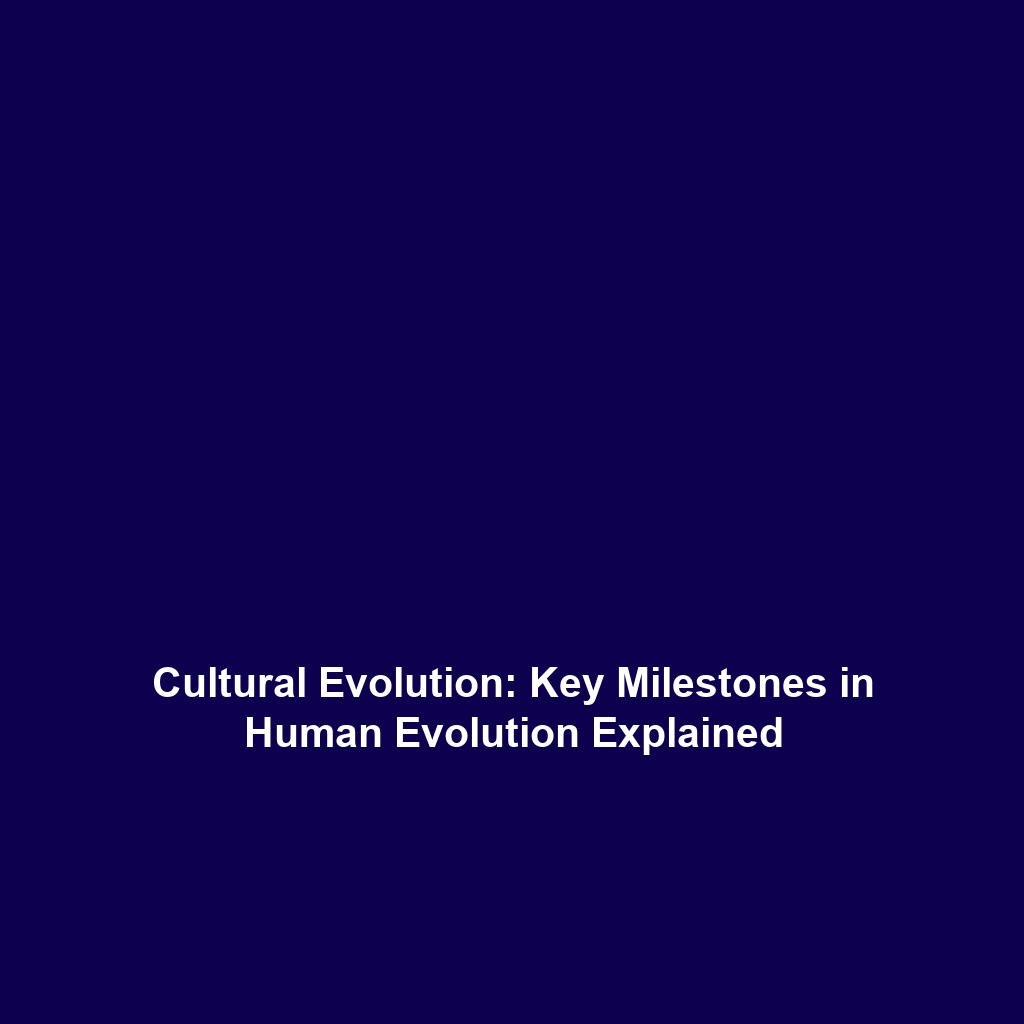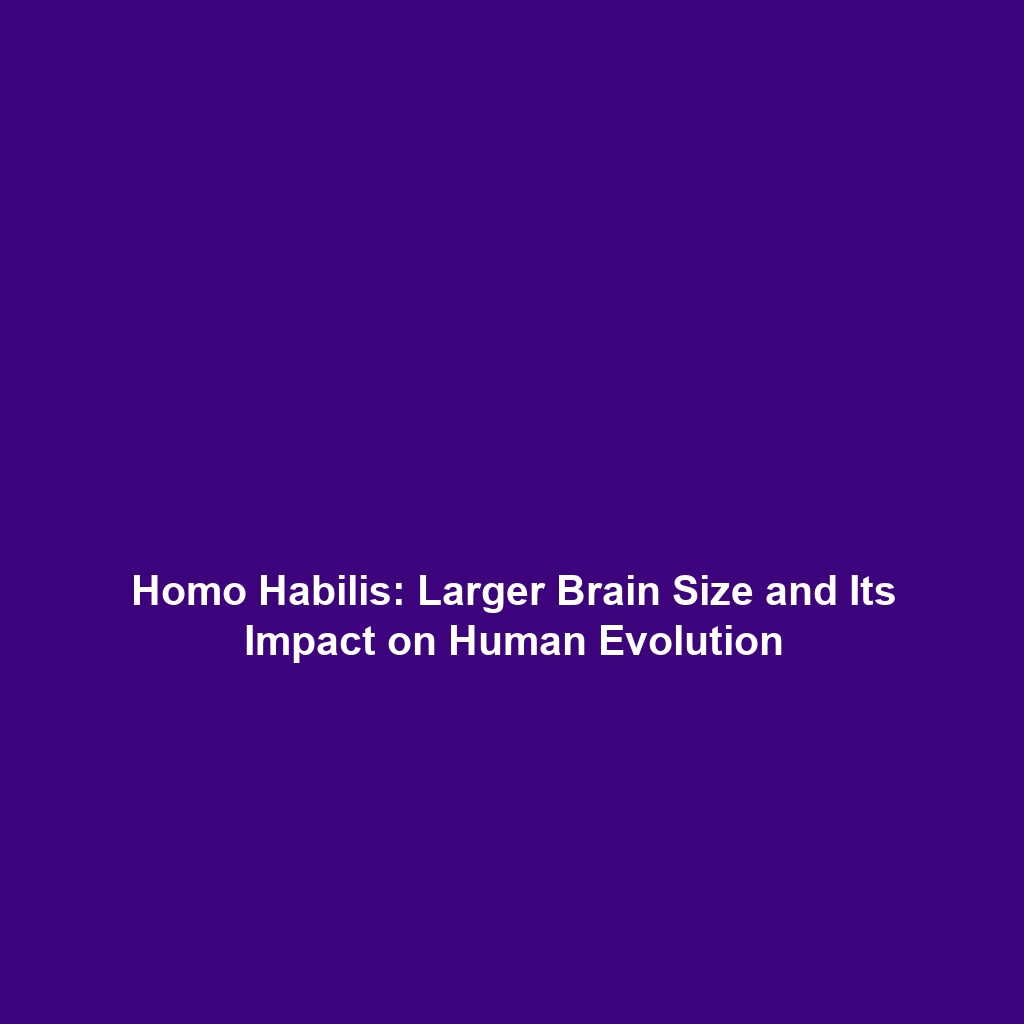Cultural Evolution and Its Significance in Human Evolution
Cultural Evolution is a fascinating field that examines how human culture, beliefs, and practices change over time and influence human behavior. Understanding Cultural Evolution is essential for grasping the broader context of Human Evolution, as it sheds light on the adaptive strategies that have shaped societies throughout history. This field investigates the mechanisms and principles that guide the transformation of culture, revealing insights into our past and future. By examining Cultural Evolution within the lens of Human Evolution, we can better appreciate the dynamics of socio-cultural development and its implications for humanity.
Key Concepts of Cultural Evolution
Cultural Evolution encompasses several key concepts that illustrate its complex relationship with Human Evolution:
1. Transmission of Culture
Cultural Evolution emphasizes how culture is transmitted between individuals and generations, through mechanisms like imitation, teaching, and social learning. This transfer of cultural knowledge is pivotal for human development, acting as a cumulative process where successive generations build upon the achievements of their predecessors.
2. Variation and Selection
Much like biological evolution, Cultural Evolution involves variation in cultural traits and the selection of those that best suit an environment. Certain cultural practices, beliefs, or innovations may rise in popularity and persist over time, while others may fade away, impacting human societal structures and interactions.
3. Co-evolution of Culture and Biology
Human physical and cultural traits have evolved concurrently, influencing one another through a process known as co-evolution. This interplay highlights the impact of cultural factors on biological evolution, as diets, social structures, and norms can drive changes in human physiology and vice versa.
Applications and Real-World Uses of Cultural Evolution
Understanding Cultural Evolution provides practical applications across various fields:
- Education: Utilizing principles of Cultural Evolution can enhance educational practices by incorporating culturally relevant pedagogies that resonate with students’ backgrounds.
- Public Health: Insights from Cultural Evolution inform health initiatives, emphasizing culturally appropriate interventions that adapt to societal norms and values.
- Environmental Conservation: Strategies derived from Cultural Evolution can promote sustainable practices by fostering cultural shifts towards environmental stewardship.
Current Challenges in Cultural Evolution Studies
Despite its significance, there are several challenges faced in the study of Cultural Evolution:
- Complexity of Cultural Dynamics: Culture is inherently intricate, making it difficult to isolate variables that drive changes.
- Sociocultural Bias: Researchers may project their cultural viewpoints, leading to potential biases in interpretation.
- Data Limitations: Collecting accurate historical and cross-cultural data can be challenging, limiting comprehensive analyses.
Future Research and Innovations in Cultural Evolution
Future research in Cultural Evolution is anticipated to incorporate innovative technologies and interdisciplinary approaches:
- Big Data Analytics: Utilizing large-scale datasets can provide new insights into cultural trends and their evolutionary pathways.
- Genetic Studies: Research at the intersection of genetics and culture may uncover how cultural practices shape human biology and evolution.
- Artificial Intelligence: AI can model cultural evolution scenarios, offering predictive insights into future cultural developments.
Conclusion
Cultural Evolution is a critical component of Human Evolution, offering a framework for understanding the progression of cultural practices and their interplay with biological evolution. By delving deeper into this subject, researchers can unveil the complexities that define human societies. For further reading on related topics, check out our articles on Human Evolution and Cultural Diversity. Embracing the insights of Cultural Evolution will undoubtedly enhance our understanding of human existence and societal development.









